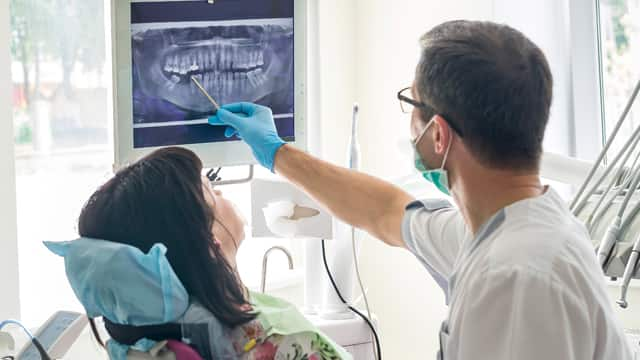If you or a family member breaks one of your wisdom teeth, what’s the wisest thing to do?
A. Avoid chewing food on the side of the broken wisdom tooth.
B. Very gently clean your back teeth, including your broken molar (wisdom teeth are known as your third molars).
C. Make a dental appointment as soon as possible.
If you choose A, B, and C, you’re very wise indeed. But the wisest of all three options is C: call your dentist’s office immediately. Once you learn the side effects of an untreated broken molar, you’ll know why contacting your dental professional is the best thing to do.






